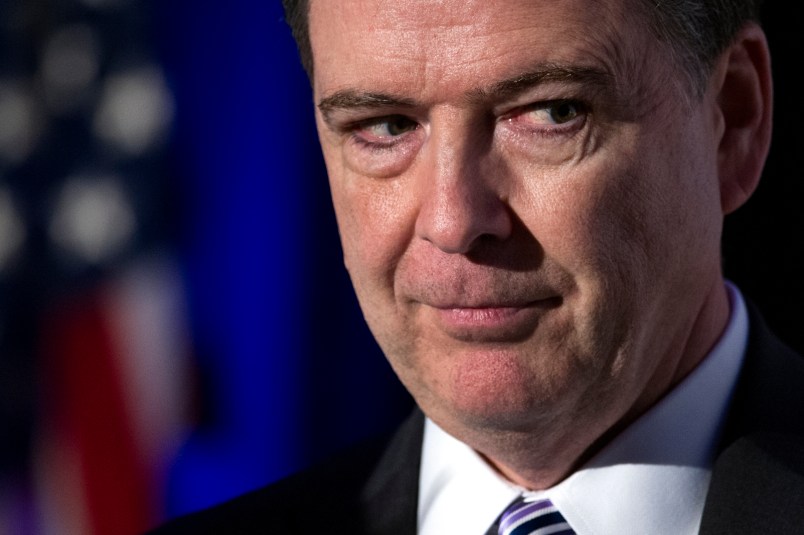It’s so far in the weeds and doesn’t directly implicate or exonerate Trump. So I suspect it may somehow not get the attention it deserves. But the new report from the Post that James Comey’s decision to announce the Clinton “no charges” decision on his own in July 2016 may itself have been the product of a successful Russian disinformation campaign is simply remarkable.
For almost a year we’ve understood that the main reason James Comey chose to announce his recommendation not to bring charges against Hillary Clinton on his own was tied in significant part to that tarmac meeting between Attorney General Loretta Lynch and Bill Clinton. Early this month we learned that in a Russian hacked email cache the FBI had also found a letter that, while ambiguous, seemed to suggest that Lynch had agreed to go easy on Clinton. That too figured into Comey’s decision. And the impact of the tarmac meeting may only have been so great because of the earlier email.
At least as I recall this new detail, the email was ambiguous but enough to make the FBI worry that if it subsequently came out in a Wikileaks email dump it could bring Lynch’s independence into question.
Now this new story tells a very different story. The email appears to be much more specific, suggesting that Lynch had given her assurance that she wouldn’t let the probe go too far. But that’s not the big news: it now appears to be the consensus opinion in the FBI and intelligence community that the email is in fact fraudulent, presumably a fake document woven into a trove of genuine documents with the aim of having it be found by the FBI and trigger something just like what in fact happened. Notably, the apparently fraudulent email never appeared in any of the document dumps during the course of the election. It only seems to have dropped directly into the FBI’s hands.
There is a lot here that is unclear, a lot left to supposition. But fraudulent documents get woven into caches of genuine documents for specific reasons, sometimes merely to sow confusion, more often to trigger specific actions. Remember, the Niger Uranium forgeries which played such a notorious role in the lead up to the Iraq War and controversies lasting long after it were in fact forgeries included in a batch of genuine documents. Some dissenting sources suggest that the phony email didn’t play much role in Comey’s decision. It only got pulled in as an ex-post facto explanation once Comey’s decision-making came into question. (Even if true, that in itself would be a highly disturbing development.) Regardless, the idea that the FBI and James Comey himself could have been punked by such an operation and taken such consequential actions on the basis of it is simply astonishing.






